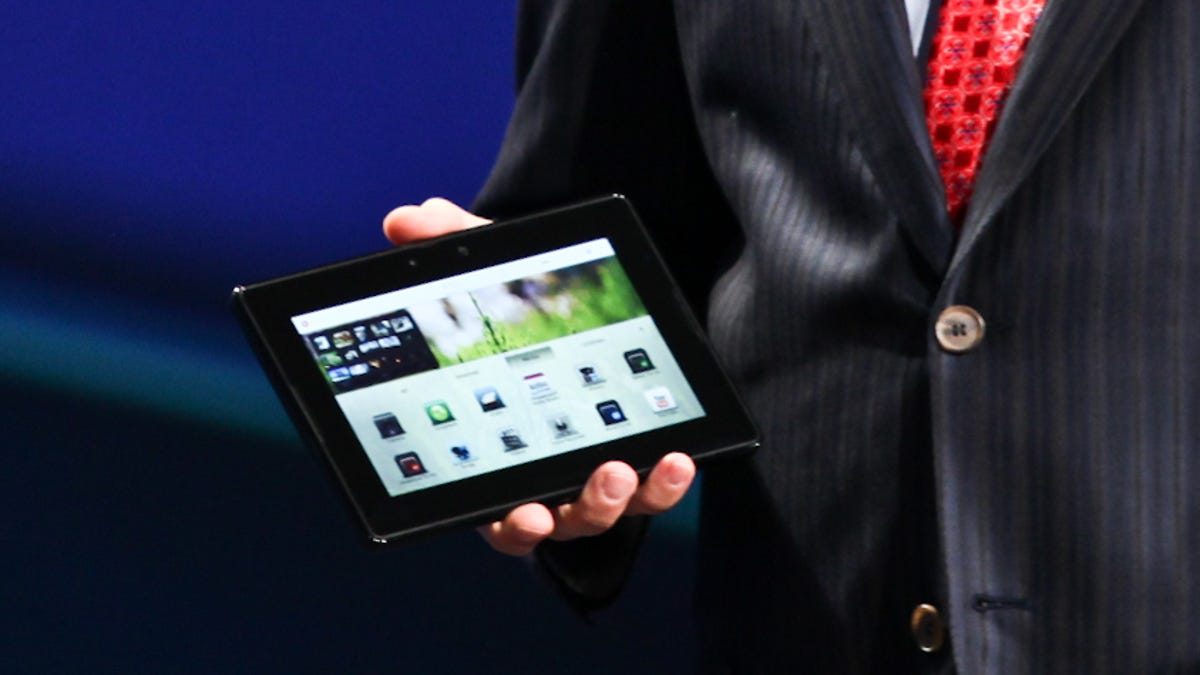RIM: We'll market the BlackBerry PlayBook to consumers, too
RIM said it will target its BlackBerry PlayBook tablet to both consumers and business users, but initial responses indicate the company may have to fight an uphill batter to win consumer attention.

The BlackBerry PlayBook is barely even a prototype and there's already speculation about who exactly will pay for the 7-inch tablet. Will it be business users taking advantage of RIM's secure e-mail and corporate IT policies? Or will it be consumers in the market for a powerful, attractive tablet?
A spokesperson for BlackBerry-maker RIM shared some insight with us, noting that RIM is likely to heavily target consumers in its PlayBook marketing.
From the very beginning, BlackBerry-maker RIM has positioned the PlayBook as a dual-demographic device that can satisfy business requirements as well as consumer needs. The specs, at least, back up RIM's claim. The tablet will support the thorough e-mail security for which BlackBerrys are known, as well as lifestyle-friendly hardware like HD video playback and both front- and rear-facing cameras. However, from what we're hearing on the streets and in our comments, readers and other industry insiders already think of the PlayBook as a predominantly business device.
That's bad news for RIM, whose success in this market (and for its brand, some might argue) hinges on BlackBerry products becoming a consumer hit. The past few years have seen RIM struggle to break the corporate straitjacket the brand has become, with almost more flops than successes; we're especially thinking about the BlackBerry Pearl Flip and the maligned touch-screen Storm series. Nor did the disappointing hardware specs of the
RIM has a good chance of pulling that off. The prototypes we saw are little more than hardware shells with repeated video material running on the screen, so it's tough to predict the usability from an eye's on perspective. We will say that they looked attractive. Yet there's still much we don't know that will affect consumers' enthusiasm down the line: pricing, battery life, app compatibility, how and where the PlayBook will be sold, and whether it can only be tethered to BlackBerry smartphones for 3G/4G coverage.
In addition, many more tablets may enter the market before the BlackBerry PlayBook arrives in the U.S. in early 2011, and overseas in the second quarter of 2011. The forthcoming Samsung Galaxy Tab is one of them.
Our advice to RIM? Start creating some highly engaging consumer advertising fast. You took a good opening shot, but there's an uphill battle on your hands.

